Child Play Therapy
Play and Creative Arts Therapy
Play is the natural language of children
Who is Play Therapy for?
Children are often too young or unable to talk about their feelings. Their pain and distress often shows in their behaviour, and their difficulty coping with certain situations.
The Play Therapist supports children to express their emotions through the variety of toys and creative material offered in the safe containment of the playroom.
As children naturally express themselves though play rather than words, their anxiety and resistance to change lowers, and they are able to explore their feelings and problematic behaviours.
This predominantly child-led process allows them the freedom to regress and repair development milestones which might have been missed, thereby supporting brain development and learning.
Play Therapy is suitable for children between 4 and 13 years old who have experienced trauma or display emotional, social or behavioural difficulties. These might include:
Emotions
Anxiety
Low self-esteem
Difficulties with regulation
Peer difficulties
Depression
Low resilience
Behaviour
Aggressive
Withdrawn
Antisocial Behaviour
Inattentive
Hyperactive
Environment
Family Breakdown
Bullying
Bereavement
Abuse
Trauma
Trauma resolution
Using only words to tackle traumatic events in a child’s life can be re-traumatising and counter-productive, as deeper unconscious emotions resurface and overwhelm the child. Using trauma sensitive assessments and individual interventions within Play Therapy ensures a safer and integrated processing of body memories as well as thoughts and feelings. This way the child practices new coping mechanisms safely and develops a greater sense of mastery over his life.
One-to-one sessions take place once a week for usually 45-50 minutes in the safe playroom, with all the necessary equipment provided.
Sessions are held at the same time and place each week to ensure consistency for the child, key in the development of a trusting therapeutic relationship.
They are predominantly child-led, so the child can choose which activity or medium they use, and explore their feelings within clear but non-judgemental boundaries, keeping themselves, the therapist and the playroom unharmed.
All work is carried out under BACP Ethical Framework to assure safety of practice, with enhanced DBS, regular supervision and full professional insurance.
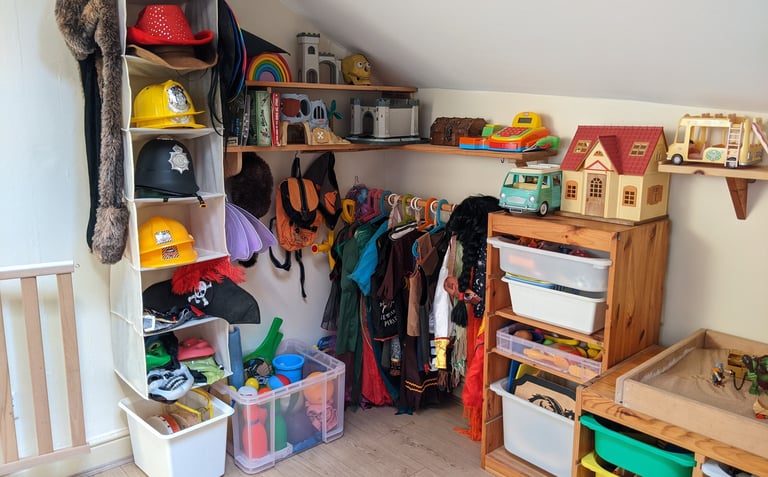

The house and the early years corner contain all the essential figures and toys to help children to fill in gaps in development stages, find self-soothing and work out family dynamics.
The Playroom




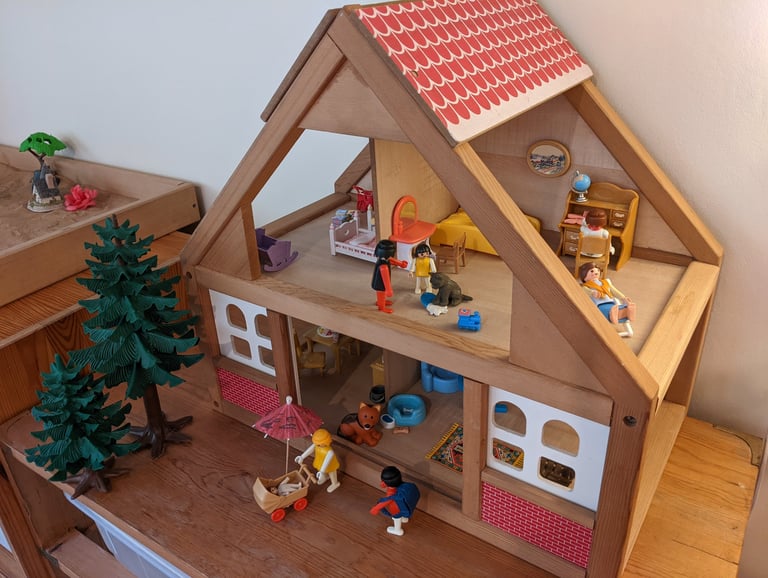

Sharing Information about Sessions
Generally, the specific details of the therapy sessions remains confidential between the Play Therapist and the child. Parents/carers and professionals are not given weekly feedback and it is important that the child is not pressured into talking about what they have been doing in the sessions. This promotes the child’s feelings of trust with the therapist and the safety of the therapy space.
The general themes and progress of therapy will be discussed during review meetings and any formal reports, with everyone informed beforehand, including the child.
There is one exception when specific details would be disclosed to other parties immediately – where there is a concern about a risk to the child or others. This safeguarding exception will be made clear to the child and parents before Play Therapy starts.
If you have any worries or concerns during the course of therapy, please contact me to arrange a time to discuss this away from your child.
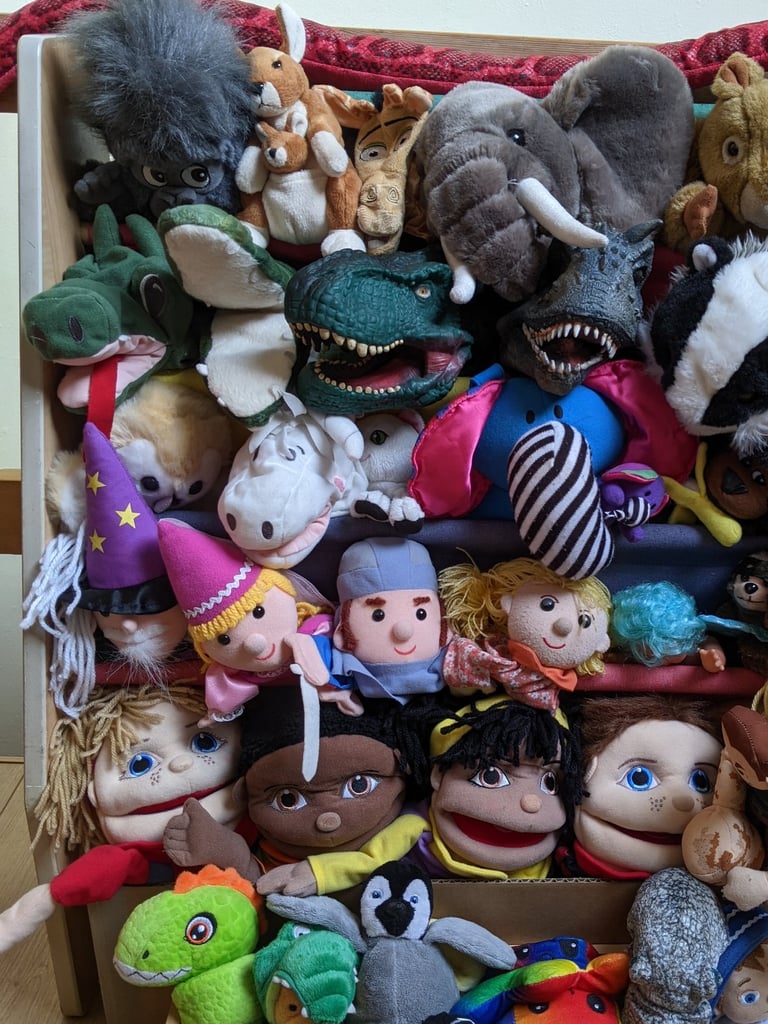

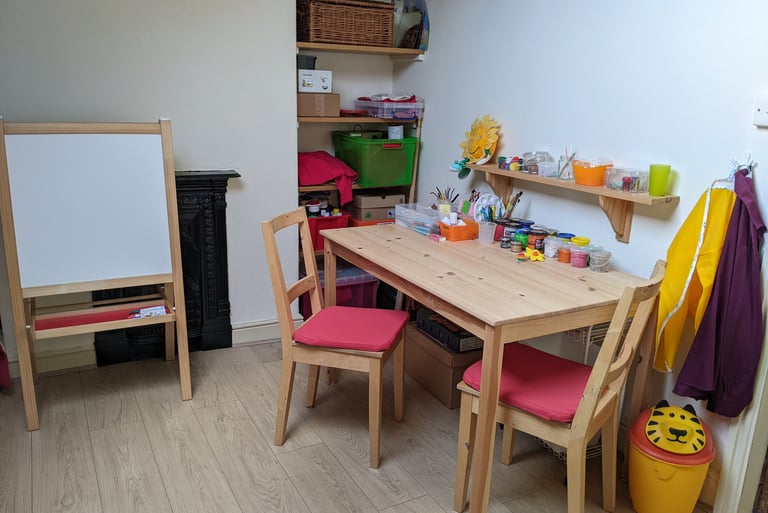

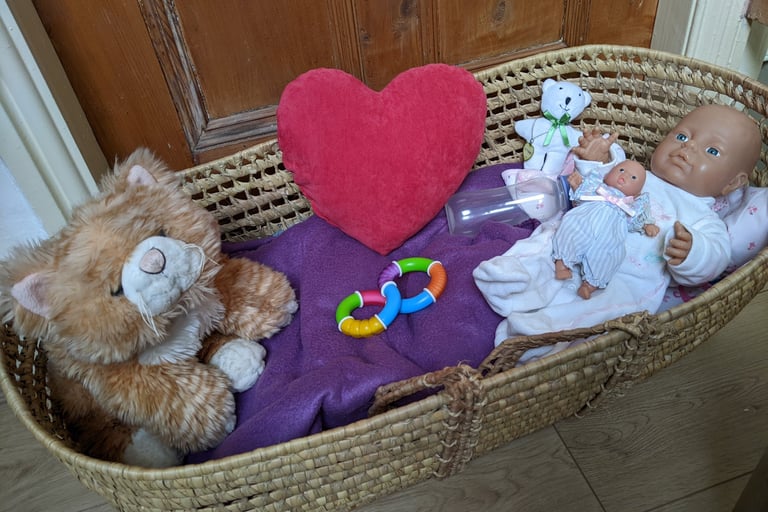

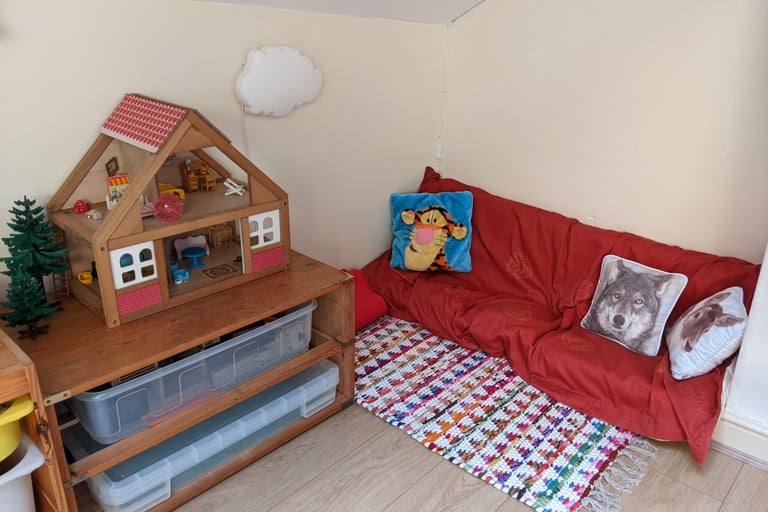

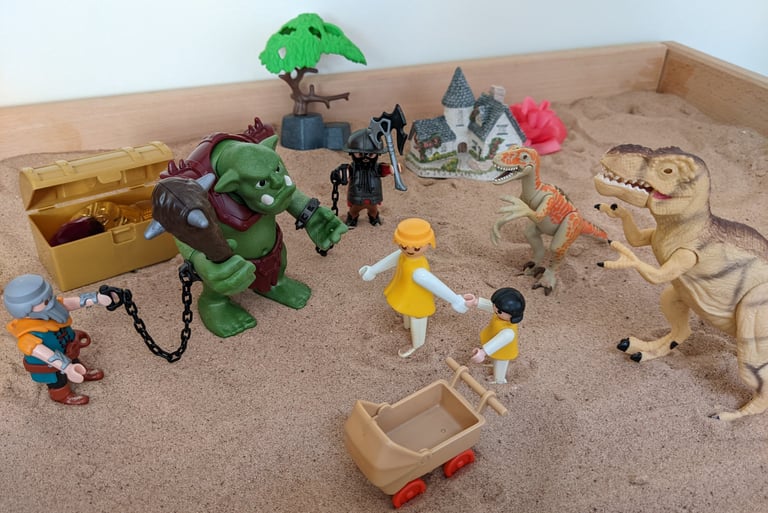

As many children struggle to verbalise their feelings, the playroom offers the ideal safe space for them to use their own natural medium of play to work through issues and test boundaries. Each child is free to choose between a vast range of activities such as music, movement, art, puppets, sand, role play, clay etc.
The non-judgemental approach builds trust with the therapist, and encourages children to develop better coping strategies. In this safe and consistent environment, children increase their openness to learning new skills and build more resilience.
When children are helped with the underlying causes of their difficult behaviour, they not only become happier and more confident, but also better at socialising and contributing to the group, therefore vastly improving family and school relationships.
Beyond this one-to-one work in the playroom, the Play Therapist works alongside the child, family, carers and sometimes school to help them to make sense of their life experiences.
Over ¾ of children will improve following Play Therapy, and the more severe the problem, the more likely the positive change.
The cosy corner offers a comfortable space for creative visualisations, therapeutic stories or simply relaxing and integrating the session's work.
The sand tray offers a safe containment for children to explore their feelings in a way that is less intimidating than words, and which often are still unconscious. It is an ideal place to play out new scenarios and get 'unstuck'.
Puppets and role play are great ways for children to express their strong feelings, explore different sides of their personality, and gain confidence.
Through the characters they embody, children feel safer to try out different ways of relating until the most appropriate one is chosen.


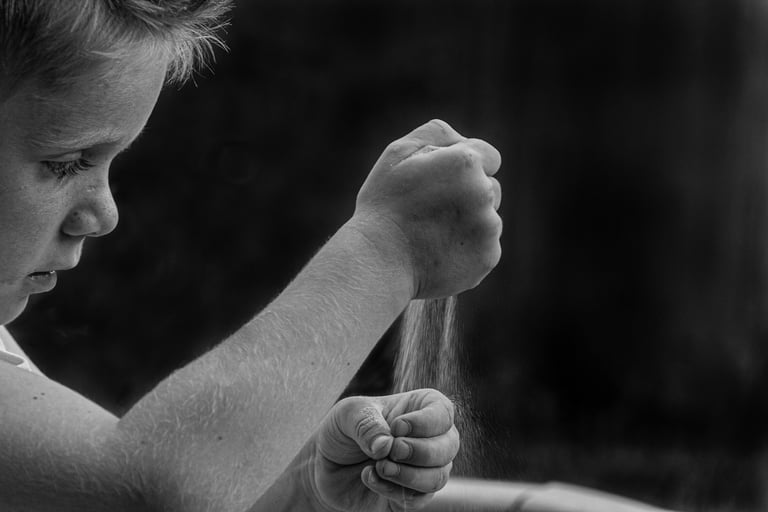



Play Therapy sessions


“You can learn more about a person in one hour of play than in a year of conversation.” – Plato
Image by Gisela Merkuur from Pixabay




My Play Therapy work integrates over 20 years of knowledge and training from the field of Trauma Therapy including Integrated Energy Techniques, a method combining EFT (Emotional Freedom Technique), NLP (Neuro-Linguistic Programming) and Hypnotherapy.
Testimonials
Lucy, Mother - Hebden Bridge
I am so happy that Isabelle’s smiling profile caught my eye! Her recent EFT work with my son has been transformational and has made a huge difference to our family. Isabelle has great warmth, compassion and kindness. We felt very safe in her hands. The treatment was sympathetic and extremely effective. My son now sleeps very well and is no longer scared of the dark. With Isabelle’s help, his anxiety is greatly reduced and his confidence and self-esteem have grown. It was clear that he trusted her and felt very relaxed in her company (in fact, I have never seen him as relaxed - anywhere, ever! - as he was in our last few sessions)
I highly recommend Isabelle. We certainly will not hesitate to go back to her for assistance with any future problems or worries that may arise in our family.
Hannah Harper, Sacred Heart School SENDCO and Teacher - Sowerby Bridge
Isabelle has been an invaluable asset to Sacred Heart.
Through my role as SENDCO, I have worked closely with Isabelle. Over the four years she has worked here at Sacred Heart as a Play Therapist, Isabelle has seen many of our most vulnerable and challenging children. She is an extremely friendly and approachable person, and the children always look forward to seeing her, in both one to one and group sessions.
Isabelle has always supported myself as a SENDCO and the Head Teacher in understanding the complexities of some of the children's needs and how we can best support them in school. Isabelle also has supported school with parental meetings and her input within these has been essential. She has become a valued member of our team at Sacred Heart. Socially and emotionally, we have seen positive progress in every child that Isabelle has worked with. Not only has Isabelle supported our children, she has also been there to support and advise their families in times of need which has been invaluable to us here at Sacred Heart.


Costs
Free initial 20 mins Phone consultation
Parent Meeting : £45 for 1h (Initial assessment, all meetings and reviews)
Child Session: £45 for 45-50 mins Play Therapy session
The work covers assessments, research and supervision.
Planning
Children will usually need a minimum of 10 to 12 sessions, but the appropriate amount will be discussed after the assessment.
Both parents and child fill out a standardised Goodman’s Strengths and Difficulties questionnaire (SDQ) and an assessment will be made, informed by the child's family history. Together we will set hoped-for outcomes which are realistic for your child.
Parents or carers are then invited to a Review meeting at week 8 to 10, when we will discuss your child's progress and the next steps.




